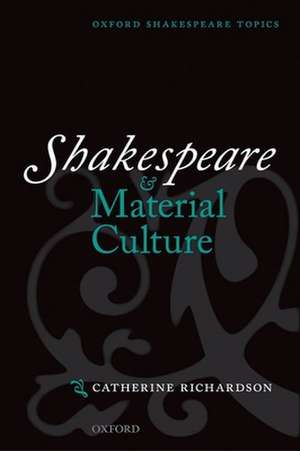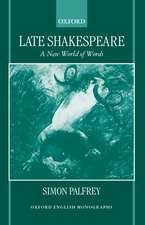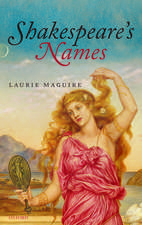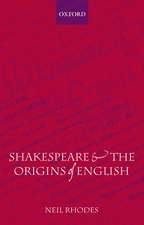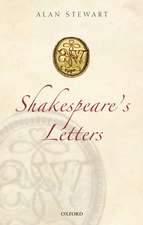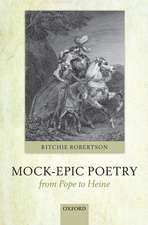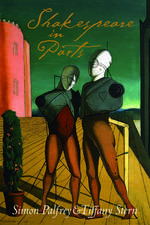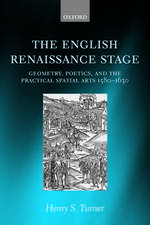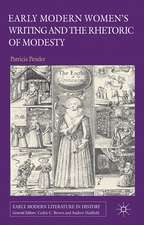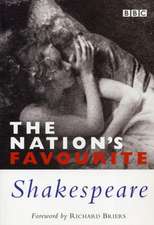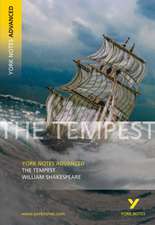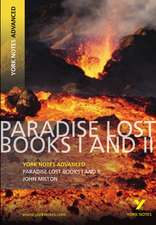Shakespeare and Material Culture: Oxford Shakespeare Topics
Autor Catherine Richardsonen Limba Engleză Hardback – 14 sep 2011
| Toate formatele și edițiile | Preț | Express |
|---|---|---|
| Paperback (1) | 177.43 lei 31-37 zile | |
| OUP OXFORD – 15 sep 2011 | 177.43 lei 31-37 zile | |
| Hardback (1) | 116.93 lei 41-52 zile | |
| Oxford University Press – 14 sep 2011 | 116.93 lei 41-52 zile |
Din seria Oxford Shakespeare Topics
- 13%
 Preț: 113.24 lei
Preț: 113.24 lei - 7%
 Preț: 130.84 lei
Preț: 130.84 lei - 13%
 Preț: 149.50 lei
Preț: 149.50 lei - 13%
 Preț: 150.13 lei
Preț: 150.13 lei - 13%
 Preț: 113.87 lei
Preț: 113.87 lei - 7%
 Preț: 131.54 lei
Preț: 131.54 lei - 8%
 Preț: 148.28 lei
Preț: 148.28 lei - 14%
 Preț: 185.27 lei
Preț: 185.27 lei - 9%
 Preț: 175.91 lei
Preț: 175.91 lei - 14%
 Preț: 157.73 lei
Preț: 157.73 lei - 14%
 Preț: 157.32 lei
Preț: 157.32 lei - 8%
 Preț: 147.30 lei
Preț: 147.30 lei - 30%
 Preț: 502.68 lei
Preț: 502.68 lei - 8%
 Preț: 179.83 lei
Preț: 179.83 lei - 8%
 Preț: 179.05 lei
Preț: 179.05 lei - 14%
 Preț: 169.00 lei
Preț: 169.00 lei - 7%
 Preț: 149.66 lei
Preț: 149.66 lei - 7%
 Preț: 180.45 lei
Preț: 180.45 lei - 7%
 Preț: 180.23 lei
Preț: 180.23 lei - 8%
 Preț: 179.99 lei
Preț: 179.99 lei - 17%
 Preț: 596.23 lei
Preț: 596.23 lei -
 Preț: 116.79 lei
Preț: 116.79 lei - 7%
 Preț: 180.39 lei
Preț: 180.39 lei - 14%
 Preț: 167.14 lei
Preț: 167.14 lei - 14%
 Preț: 166.77 lei
Preț: 166.77 lei - 14%
 Preț: 177.40 lei
Preț: 177.40 lei -
 Preț: 225.62 lei
Preț: 225.62 lei - 7%
 Preț: 172.12 lei
Preț: 172.12 lei - 8%
 Preț: 179.35 lei
Preț: 179.35 lei - 8%
 Preț: 179.80 lei
Preț: 179.80 lei - 14%
 Preț: 158.63 lei
Preț: 158.63 lei - 10%
 Preț: 277.54 lei
Preț: 277.54 lei - 14%
 Preț: 166.05 lei
Preț: 166.05 lei - 9%
 Preț: 176.20 lei
Preț: 176.20 lei
Preț: 116.93 lei
Nou
Puncte Express: 175
Preț estimativ în valută:
22.37€ • 23.42$ • 18.51£
22.37€ • 23.42$ • 18.51£
Carte tipărită la comandă
Livrare economică 04-15 aprilie
Preluare comenzi: 021 569.72.76
Specificații
ISBN-13: 9780199562282
ISBN-10: 0199562288
Pagini: 240
Ilustrații: 10 black-and-white halftones
Dimensiuni: 135 x 205 x 20 mm
Greutate: 0.39 kg
Editura: Oxford University Press
Colecția OUP Oxford
Seria Oxford Shakespeare Topics
Locul publicării:Oxford, United Kingdom
ISBN-10: 0199562288
Pagini: 240
Ilustrații: 10 black-and-white halftones
Dimensiuni: 135 x 205 x 20 mm
Greutate: 0.39 kg
Editura: Oxford University Press
Colecția OUP Oxford
Seria Oxford Shakespeare Topics
Locul publicării:Oxford, United Kingdom
Notă biografică
Catherine Richardson is senior lecturer in Renaissance literature at the University of Kent. Her research focuses on the material experience of daily life in early modern England, on and offstage: on narrative and storytelling, on houses and furniture, and on the social, moral and personal significance of clothing. She is the author of Domestic Life and Domestic Tragedy: the material life of the household (2006) and editor of Clothing Culture1350-1650 (2004) and, with Tara Hamling, Everyday Objects: medieval and early modern material culture and its meanings (2010).
Recenzii
Catherine Richardson allows a reader to see how Shakespeare's plays depend on objects and spaces of the early modern stage. By using contemporary diagrams, the author provides a visual guide to the objects of the time alongside critically focused text.
Richardson's carefully researched, beautifully written study offers valuable critical insights into Shakespeare's plays and argues for the importance of things in Shakespeare's work ... Highly recommended.
... this book is a fine one, valuable as an overview for practitioners from the advanced undergraduate through the seasoned specialist.
Richardson's carefully researched, beautifully written study offers valuable critical insights into Shakespeare's plays and argues for the importance of things in Shakespeare's work ... Highly recommended.
... this book is a fine one, valuable as an overview for practitioners from the advanced undergraduate through the seasoned specialist.
